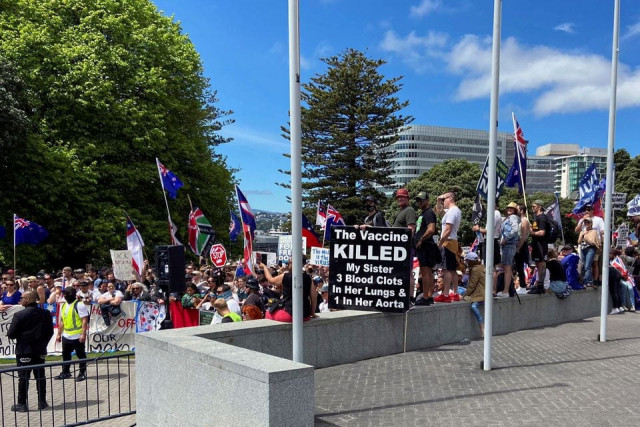New Zealand to fully reopen international borders from July 31
Reopening brought forward by 2 months to relieve urgent skills shortages, boost tourism, says prime minister

New Zealand will fully reopen its international borders from July 31, Prime Minister Jacinda Ardern announced on Wednesday.
The decision means all tourists and visa holders will be able to enter the country two months earlier than initially planned.
Ardern said the move will help relieve urgent skills shortages open up tourism and put immigration settings on a more secure footing.
Earlier this month, New Zealand started welcoming visitors from around 60 countries for the first time since the onset of the COVID-19 pandemic over two years ago.
Ardern said the reopening is part of the government’s “proven plan to secure New Zealand’s economic future.”
“New Zealand is in demand and now fully open for business,” she said.
According to Education Minister Chris Hipkins, over 5,000 students will arrive in New Zealand by mid-July.
“From the end of July, all international students who meet normal entry criteria can enroll for study here,” he said.
More sanctions on Russia
New Zealand announced more sanctions on Russia for its “campaign of disinformation” on Ukraine.
“The latest round of sanctions targets eight individuals and entities,” Foreign Minister Nanaia Mahuta said in a statement issued late on Tuesday.
She said Russian President Vladimir Putin’s “propaganda machine is in full swing, spreading lies and false information to justify Russia’s illegal invasion.”
The new measures build on New Zealand’s “earlier sanctions targeting propagandists, and expands our sanctions list to include a notorious ‘troll farm’, the spokesperson of the Russian Ministry of Defense, and others,” read the statement.
Since the war began on Feb. 24, New Zealand has imposed a raft of sanctions on Moscow, ranging from measures against its top financial institutions to import tariffs and trade and travel curbs.



















COMMENTS
Comments are moderated and generally will be posted if they are on-topic and not abusive.
For more information, please see our Comments FAQ